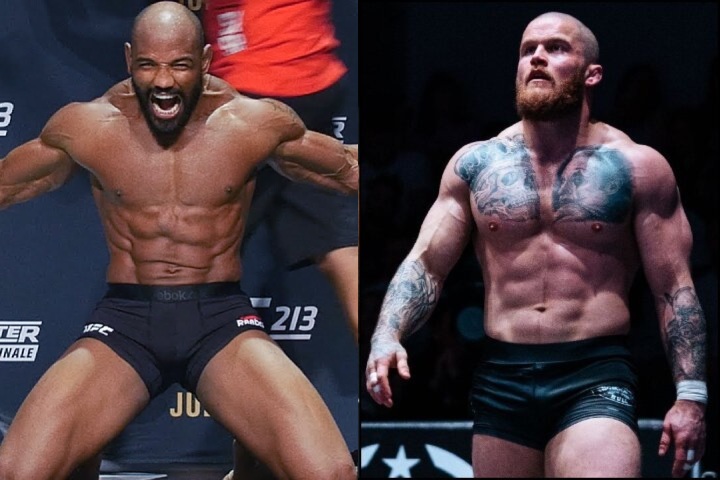Yoel Romero is set to participate in an openweight grappling contest against Owen Livesey at Polaris 28. Romero, an Olympic silver medalist in wrestling, will square off against Livesey, a Commonwealth Judo champion, in a submission grappling event. This event is scheduled to take place on June 15 in Doncaster, England, and will be streamed on UFC Fight Pass, as confirmed by the promotion’s officials.
Romero, who competes in the PFL as a light heavyweight, has previous experience in submission grappling. He notably secured a victory over UFC heavyweight Chris Barnett with a first-round kimura at an event organized by Dean Toole Promotions in 2019. Meanwhile, Livesey has a notable win against former UFC middleweight champion Chris Weidman, whom he defeated by unanimous decision at Polaris 23 in March 2023.
When elite wrestlers face elite judokas in a no-gi grappling match, the outcome can be quite intriguing due to the differing skill sets and strategies inherent in each discipline. Here’s how the clash typically unfolds:
- Takedown Strategy: Wrestlers are known for their aggressive takedown techniques, focusing heavily on lower-body attacks like single and double leg takedowns. They are adept at controlling their opponents from the top position. Judokas, on the other hand, excel in throws and trips, often using their opponent’s momentum against them. Without the gi, which is crucial for grip in judo, judokas may need to adapt their techniques to be effective in no-gi situations.
- Ground Game: On the ground, wrestlers generally have strong top control and are effective at maintaining positions and advancing to more dominant positions. They might lack the submission variety found in Brazilian jiu-jitsu, which can be a limitation in submission grappling. Judokas are also comfortable on the ground, especially in securing holds and utilizing pinning techniques, though their submission arsenal might not be as extensive as that of a seasoned jiu-jitsu practitioner.
- Adaptability and Stamina: Wrestlers often bring exceptional stamina and adaptability to the mat, able to maintain a high pace and pressure throughout the match. Judokas might leverage their expertise in using leverage and balance disruptions effectively, even in no-gi scenarios, to counteract the wrestler’s strength and aggression.
- Scoring and Strategy: In a submission-only format, the wrestler’s lack of a diverse submission game might be a disadvantage unless they have cross-trained in other grappling arts. Similarly, judokas might struggle without the ability to use traditional grips on the gi, but their throw and trip techniques can still earn valuable positioning points in formats where control and takedowns are scored.
Ultimately, the match-up can vary significantly based on the individual competencies of the athletes involved, particularly how well they have adapted their base martial art to the no-gi grappling environment. Cross-training in other grappling styles, such as Brazilian jiu-jitsu, often plays a crucial role in these matches.

















